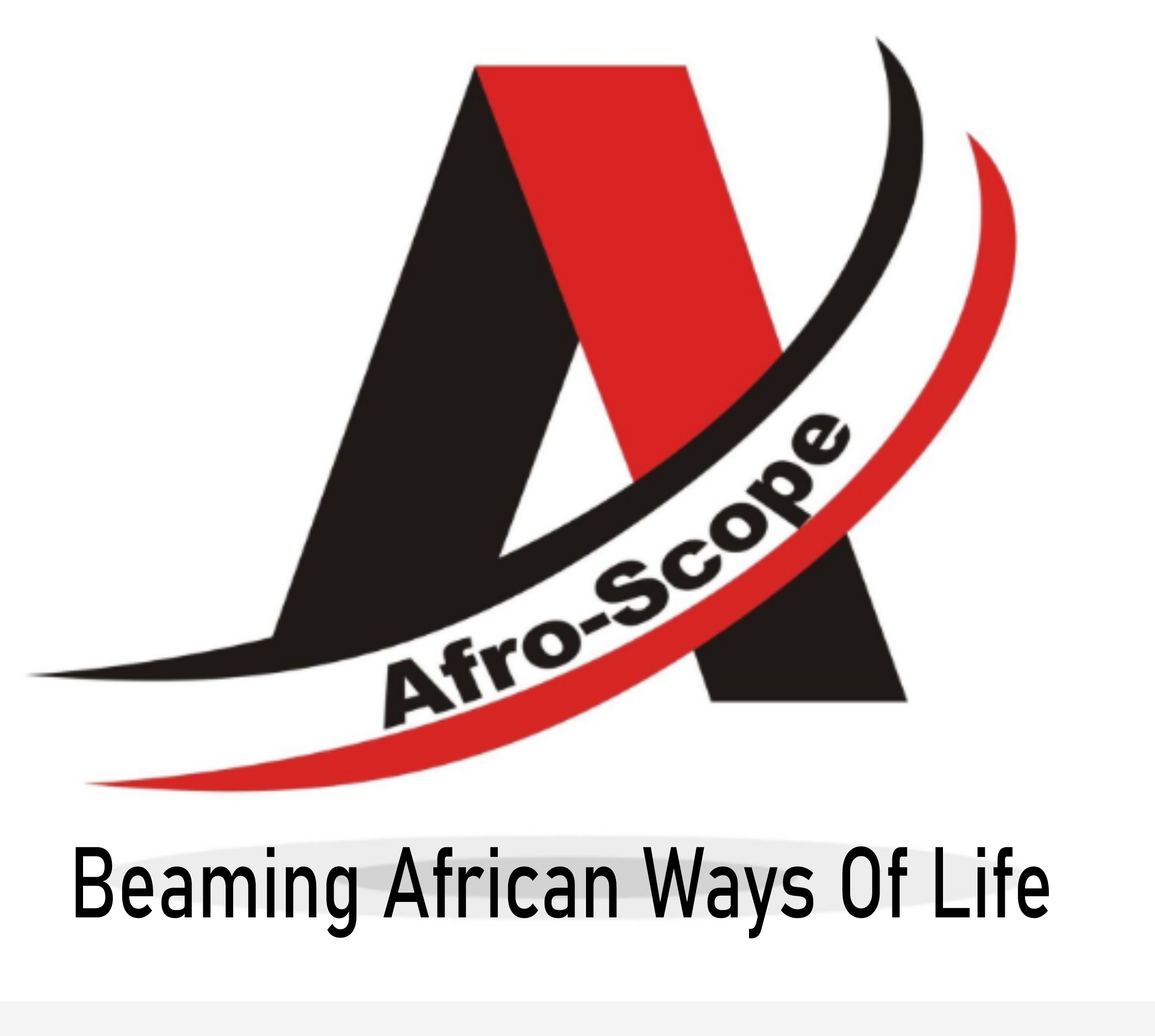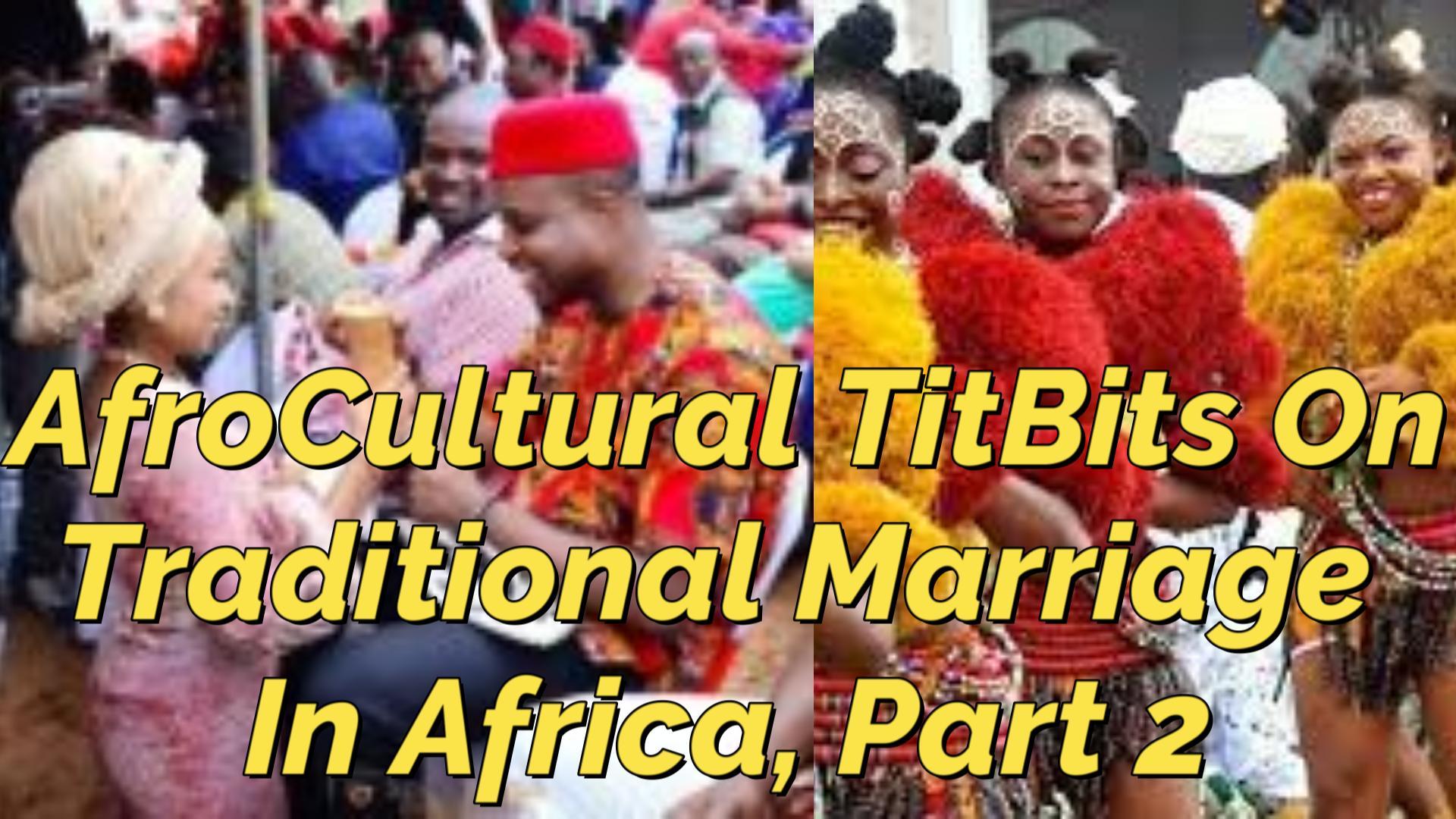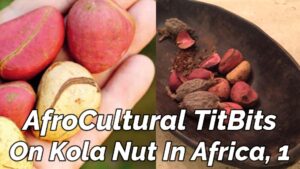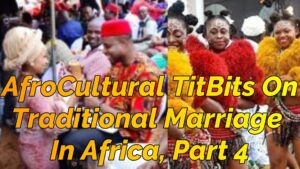August 28, 2022
STAGE ONE OF THE JOURNEY–MEETING OF FAMILIES
Greetings, folks!
I am Harry Agina. And we are on edition 2 of Udoakpuenyi’s series on “Traditional Marriage In Africa,” on NBB’s “AfroCultural Titbits.” If you didn’t know, we have special interest in the preservation and promotion of all cultures of the world. We insist that they are all legitimate and beautiful in their own ways. And yes, they all do have some ancient flaws, too, which must be corrected to suit the modern world. So, contrary to some motherfucking Pentecostal Christians who are destroying the African Culture, we are into the promotion of the African Culture. We do our promoting by sharing some traditions and other elements of the African Culture with the rest of the world. This time, we are on African traditional marriage.
We gave you a basic introduction in edition one. As always, we have the link to that edition for you at the end of this blog. This edition is the beginning of a journey into a typical traditional marriage of the Igbo tribe of southeast Nigeria. Do remember, there are variations among sections of the Igbo people, albeit very slight in many instances. There are, of course, variations among the various tribes in Nigeria, too. So also it is among the regions of Africa. But, all in all, there are still those traits that are common among all these sections of Africa. No wonder, one can use the phrase, “The African Culture.” Naturally, such variations and commonalities do exist in every culture of the world, too. Anyway, here is our traditionalist, Udoakpuenyi, with stage one of AfroCultural marital process journey:
STAGE ONE OF THE JOURNEY–THE PRELIMINARIES:
I greet you! I am Udoakpuenyi, as Harry already informed you. “Charity begins at home,” they say. So, I said at the end of the last edition that I will start this journey into traditional marriage in Africa from home. I will begin with my own tribe in Africa, the Igbo people of southeastern Nigeria. And I will go all the way home to illustrate with the story of my own nephew, Ikechukwu, and his fiancee. They eventually became husband and wife, providing me with the opportunity to begin this charity right inside my home on this journey.
Ikechukwu is 26. He is fondly called Ik, for short. He is my first cousin’s son, but I call his father ‘brother,’ because we do not have words for cousin in my own dialect of the Igbo language. Well, at least, there is none to my knowledge anyway. The much I can do is to describe the relationship, just as I have done, or simply call him my brother. Furthermore, part of the AfroCultural Titbit that I bring you here now is that everyone from the same village as oneself is actually called brother or sister or mama or papa. At least that’s how it used to be before foreign influences started to bastardize our culture. It’s like one big happy family in the community. Generally, we can safely say that Africans are among the most family-oriented or cohesive peoples of the world.
Ik grew up in the USA. His father is wealthy, so he could afford to give Ik and his siblings good education abroad. They attended secondary school in Nigeria, and University in the USA, which is a common trait among wealthy families in Nigeria. Ik’s father was afraid that Ik would not want to return to Nigeria to inherit and take care of papa’s business after his US education. This is usual with children who grew up abroad. The truth is that the American environment is better than Nigerian environment. So, some of the youths do not want to return home after enjoying good life in the US. Ik is the first child and the only boy in the family among three children. He has two sisters, and they are both his junior in age. So a lot of family expectations and responsibilities lie on his shoulders.
Most African societies are male-centered. The first male child is expected to sustain the family chain while the women are married off. Don’t get me chauvinistically wrong, though. While the male leads the home, the female holds the power to run the home. So the male child is so important mainly because he sustains the family lineage. In Igbo culture, any family that does not have a male child, suffers a lot of pressure from the extended family, called “Umunna.” You are expected to “be a man” and ensure that your family lineage does not go extinct. That is why we bear names such as, “Obiechina,” which translates to, ‘May my family lineage never cease to exist.’ Another one, “Afamefuna,” means, ‘May my family name never get lost.’ Many parents do manage to get their children to abide by this traditional quest. And this sometimes becomes a source of conflict between African male students abroad and their host-country girlfriends.
An African young man with the foregoing cultural mentality who lives in America, or elsewhere, may easily date a lady in his host-country. But when it comes to marriage, the tendency to go back home to Africa to pick a wife is high. Yes, this does look very bad to the American lady, because it is truly bad in some ways. But you may be able to forgive the young man if he handles it conscientiously without deceit. He does have very important cultural reasons to be drawn back home for a wife. Foreign ladies may not be able to conform to those reasons. Unfortunately, though, some bad boys do it in wrong ways. They deceive the ladies with false marriage promises. But, of course, there are young men who are not bound by such traditional responsibilities. They do sincerely marry foreign ladies.
The Role Of Parents In Finding a Wife: One of Ik’s father’s strategies to bring Ik home to Nigeria was to get him a wife who is not just a Nigerian, but also from his home town. That is a tough demand from a young man who has been exposed to the western lifestyle. He is used to the western liberty of choosing his own wife by himself. Ik’s father, like most Africans, believes that marrying a woman who is not from your home is a waste of time and resources. Their fear is that if anything goes wrong in the relationship, the wife may likely take the children, and the man will go empty-handed. This means that the family lineage may be lost. But if she is from the same place, there is no place to run. I does make some sense; doesn’t it? Um huh, especially if you’re African.
Ik’s father’s first attempt to sell this strategy earlier in 2019 when Ik completed his university education hit the rocks. His father wanted to know if he had any going relationship, which he did. He had hooked himself up with a beautiful Caribbean lady in the UK. His father tried to educate him on the need to marry someone from their side but did not succeed. Ik had a deep crush on the Caribbean, and his father did not make any sense to him about leaving his sweetheart.
Back home in Nigeria, Ik’s father and mother were still busy searching for a wife for him. They don’t see anything wrong with that; their only son has got to be African and keep his family lineage going. In one traditional event in faraway Abuja, Ik’s mother met a 25-year-old young graduate who also returned home for a sister’s traditional marriage. Chioma was doing a masters program in Canada and returned home for this activity. The charm of this young lady got Ik’s mom. She didn’t waste any time in approaching her for a quick introduction. As luck would have it, the lady was from the same village as Ik. When she found out that she was from a good family background, she told the girl straight up that his son was going to marry her. She brought a clean N1000 note and gave it to her. Then she said, “Give this to your parents. Tell them that someone has paid your dowry. We will come and meet with them.” Mind you, this was not quite the tradition. She was being melodramatic, just to indicate interest in the young lady. And she did not even know if her son would like the young lady, and vise versa.
So, what is the correct traditional way to do what Ik’s mom just did in her melodramatic style? Was she able to kick-start a process that will later develop into something between her son and the charming young lady? We shall let you know in the next edition of “AfroCultural Titbit” on Traditional Marriage In Africa. That’s when we shall begin the real journey, with the five basic steps in the process.
Oh, by the way, we are purposely, teasingly, leaving the best for last. We have more than just the five steps in the journey into African marriage in the next edition. We have the climax of Ik’s marriage with Chioma. And we have it on video, too; a professional video clip of the highlights of Ik’s colorful marriage, courtesy, BBC Igbo Service. It is a process that you definitely will enjoy to behold, with very entertaining AfroCultural dances. For now, let’s leave you with another pictorial sign-off:
Written by Udoakpuenyi.
Introduction and Editorial augmentation by Harry Agina.
So, you heard it, the subsequent editions will get more and more entertaining.
HERE’S THE PROMOSED LINK TO EDITION ONE OF “TRADITIONAL MARRIAGE IN AFRICA”:




